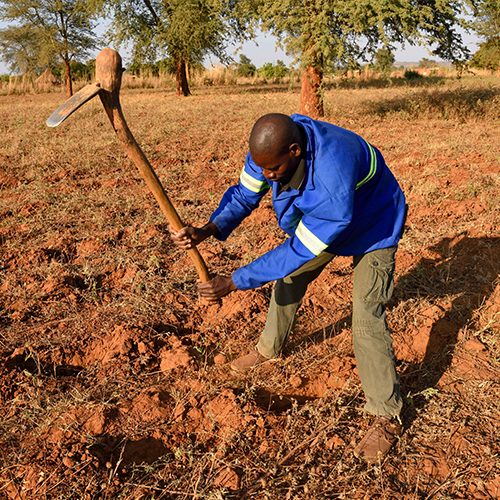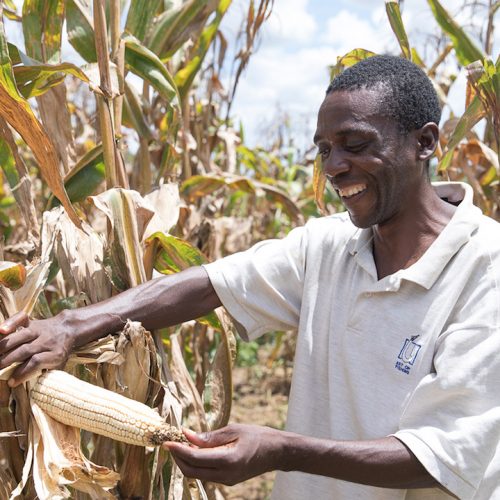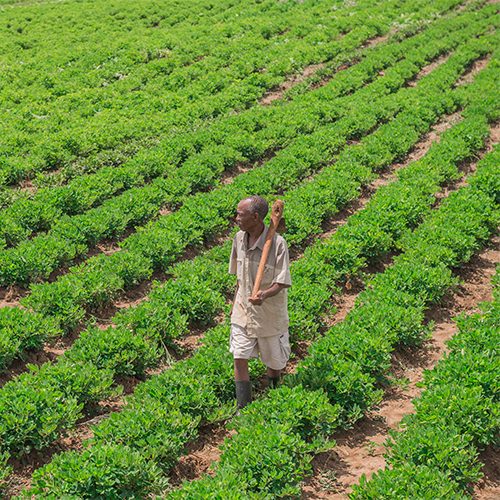MINIMUM DISTURBANCE OF THE SOILS.
Instead of over-all digging, ridging or ploughing, a farmer instead disturbs the soil only where he needs to place the seeds and inputs. Minimum Tillage is the central and non-negotiable difference between CF and conventional farming. By disturbing the soil less, the soil profile and health is protected for longer.
RETENTION OF RESIDUES
CF advocates for leaving crop residues in situ after harvest, and not burning or removing them. This plant matter adds to the organic carbon content of the soil, retards top soil erosion and helps to reduce water loss through evaporation.
Rotating crops breaks up pest and disease cycles and when legumes are incorporated (as prioritized), helps fix valuable nitrogen in the soil for the next crop. Those farmers who rotate and do not depend solely on crops such as maize manage to spread their risk and withstand market and environmental shocks better.




